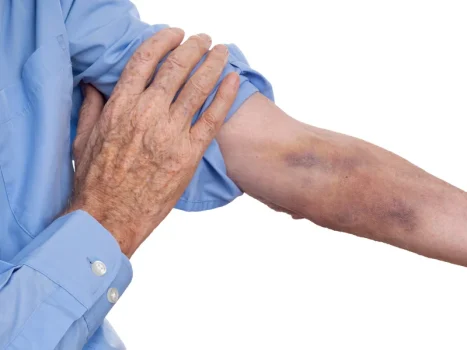
A connection between the two suggests that you can choose to not think about an event. This decision, in addition to remembering separate, less traumatic memories, makes the traumatic ones less accessible. The Diagnostic and Statistical Manual of Mental Disorders, 5th edition (DSM-5) includes the idea of dissociative amnesia, which is defined as the inability to recall autobiographical information. “There is a belief that there is a threshold of trauma where the human brain cannot overcome without dissociation,” McLaughlin said. “Age, genetic factors and environment can contribute to how high that person’s threshold is and how their brain responds to severe trauma.”
Connect with NIMH
A post-traumatic stress disorder (PTSD) trigger can include any sound, sight, smell, thought, or another reminder of a traumatic event. Such triggers are sometimes apparent, but they can also be subtle and more challenging to identify. As with other forms of trauma, it’s common for sexual trauma to cause PTSD, which can manifest in your life as nightmares, anxiety-boosting triggers and memory loss. According to Duke, your experience (and healing process) with sexual trauma will vary depending on whether it was a single event or ongoing, as well as your age. A healthcare provider can diagnose dissociative amnesia based on the symptoms you describe and by asking questions about what you can or can’t remember, what you’re experiencing and details about your life. Your provider may also use a questionnaire designed to help diagnose dissociative amnesia.
- One important reason why T‐LOC is misdiagnosed is the misunderstanding caused by the use of confusing terminology.
- According to Duke, trauma can sometimes be understood as big “T” and little “t” trauma.
- If this happens, they will not remember anything that they did while they were drinking.
- Lurie says she had a memory from middle school where both the halls and lockers looked and felt huge.
- Your mind is capable of extraordinary things, and protecting you from painful and traumatic memories may be one of them.
If not repressed trauma, then what?

Details about upcoming events—including meetings, conferences, workshops, lectures, webinars, and chats—sponsored by NIMH. The Division of Intramural Research Programs (IRP) is the internal research division of the NIMH. Over 40 research groups conduct basic neuroscience research and clinical investigations of mental illnesses, brain function, and behavior at the NIH campus in Bethesda, Maryland.

Tilt table testing

The concept of retrieval inhibition states that remembering some information can lead to forgetting other information. The difference in opinion is driven by a few different narratives, including the idea of “planted memories,” in which a therapist — or in some cases, a legal prosecutor — may suggest forgotten memories. A person’s genetic makeup and their environment can both contribute to how the trauma is received. This is mandatory for any patient with collapse, and multiple ECGs will increase the certainty of normality ((figsfigs 3 and 44).). Some patients may have fluctuant ECG changes—for example, patients with Brugada syndrome (fig 33).
- If you are experiencing these symptoms or any other worrisome symptoms, seek the advice of a health care provider.
- That means the emotional and physical feelings of anger are more intense.
- In this condition, there is a disruption in the balance of neurotransmitters that regulate the blood vessels and heart rate, causing a temporary decrease in blood flow to the brain.
- Blackouts can also occur due to epileptic attacks (seizures) and psychogenic reasons, such as stress and anxiety.
- Dissociative amnesia is when your mind blocks out important information about yourself, causing “gaps” in your memory.
- However, the brain can also repress or push traumatic memories aside, allowing a person to cope and move forward.
- The theory of repressed memories focuses on a traumatic event that a person may not remember at all, or may not remember until after the event.
They can lead a person to feel detached from friends or family members. It is natural to feel afraid during and after a traumatic situation. Fear is a part of the body’s “fight-or-flight” response, which helps us avoid or respond to potential danger. People may experience a range of reactions after trauma, and most people recover from initial symptoms over time. Those who continue to experience problems may be diagnosed with PTSD.
Research shows that support from family and friends also can be an important part of recovery. Common faint or vasovagal syncope is the most common cause of the blackout and is mostly experienced by boys and trauma blackout girls in their teenage years. In this condition, there is a disruption in the balance of neurotransmitters that regulate the blood vessels and heart rate as a reaction to stressful or frightening situations.

Press Resources

